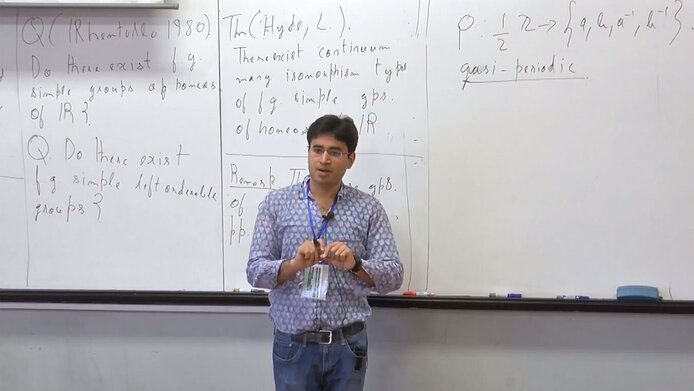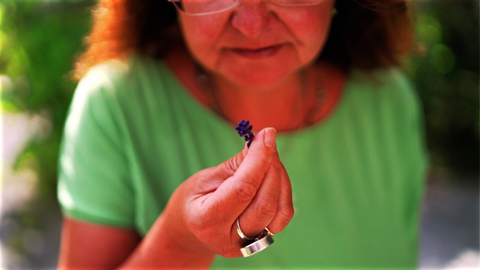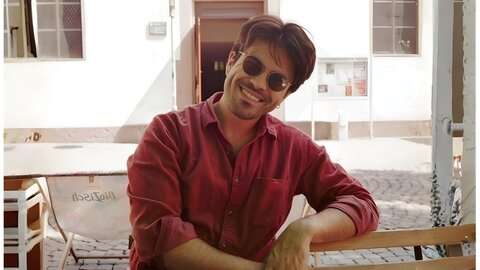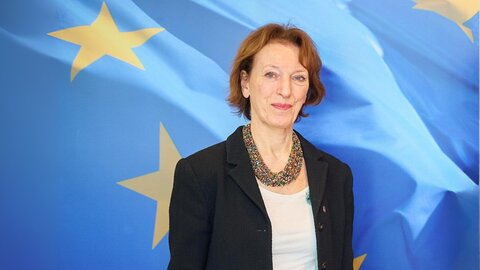A profound understanding of symmetries

Your research interest is group theory, a field within mathematics. Can you give a brief description of your field?
Yash Lodha: You could describe a group as a mathematical abstraction of symmetries. Thanks to symmetry, a physical object may be rotated in a three-dimensional space, or it may be reflected. The structure of the object, properties such as length or the object’s angles, do not change in this process, even if a sequence of several symmetry actions is performed, or if symmetry actions are reversed. All of this can be described by means of algebra – as what we call a group. Groups can be characterised as having a finite number or an infinite number of symmetries. Group theory has a long history. But not until the 20th century did researchers understand that group theory can also be used to gain a better understanding of geometrical questions.
Which answers do you hope to find through your project?
Lodha: Group theory is a central research field within mathematics today, and one that has many applications, for example in computer science, cryptography or in physics. Whenever you model a physical system, symmetries will appear. As a theoretical mathematician, however, I try to see groups as purely mathematical objects, and I aim at making progress regarding fundamental questions. At the same time, I want to find examples of new groups that have not been considered possible until now, and which have interesting characteristics. I want to develop a better understanding of the symmetries in groups by studying the relationship between the structure of space and the algebraic structures. In other words, you can view the symmetries as dry algebraic theory, or you can visualise them graphically as objects and spaces. My research field straddles these two worlds.
Personal details
Yash Lodha, who was born in India, earned a doctorate in mathematics at Cornell University, USA in 2015. After postdoc studies at EPF Lausanne in Switzerland, Lodha served as principal investigator in an “Ambition” research project of the Swiss National Fund SNF and was Research Fellow at the Center for Mathematical Challenges at the Korea Institute for Advanced Study in Seoul. His scientific achievements include the development of a new approach towards solving the Neumann Day problem for finitely presented groups, which he published in 2013 together with his colleague Justin Tatch Moore.
What will be your first steps?
Lodha: I live in Lausanne at the moment and will very probably move to Vienna next year. As soon as all practical details are clear, I will start my research group with PhD and postdoc researchers at the University of Vienna.
What does the START Award mean for your research?
Lodha: I participate in many international cooperation projects involving researchers from different countries, including South Korea, the United States and France. These collaborative efforts will of course continue and will be much strengthened by the project. As a theoretician in mathematics, you need hardly any equipment, no laboratory tools. But we will have sufficient resources to work together and to organise seminars.
The corona crisis has highlighted the importance of personal collaboration. It is complicated to work together on a mathematical problem if you are using video conferencing. Moreover, there is the possibility to work with young researchers. I have reached a point where I can no longer study each and every research question I would like to work on. This provides opportunities for doctoral candidates to delve deeper into an issue.
What motivates you as a researcher?
Lodha: Partly curiosity, partly ambition, and partly inspiration. I am a very curious person by nature – whenever a new topic arises, I am always keen on learning more about it. But I am not content with just taking in new information, I also want to create new knowledge. The third aspect, inspiration, is especially important for me. When I can’t seem to make any progress with my theories, the work of other researchers, discussions with colleagues from my field, or simply a good lecture can provide fresh stimulus. In mathematics, you sometimes work on a problem for months or years without being able to solve it. It is important to learn how to cope with this situation. But even if you cannot solve a problem, you will always benefit from studying it. You may come away with a better understanding of a given set of facts, or you may be able to use the tools you developed for a problem in some other way.
About the project
The project “Algebraic, analytic and dynamical properties of group actions” addresses topics of group theory, a central area of mathematics. The project involves work at the intersection of topology and combinatorics and aims at finding new, basic insights into the geometrical and algebraic symmetry structures presented in groups.
The START Prize
The START Programme of the Austrian Science Fund FWF is aimed at outstanding young researchers, giving them the opportunity to plan their research over an extended period and with a high degree of financial security. It is endowed with up to EUR 1.2 million and is one of Austria’s most prestigious and most highly endowed awards alongside the Wittgenstein Award.





